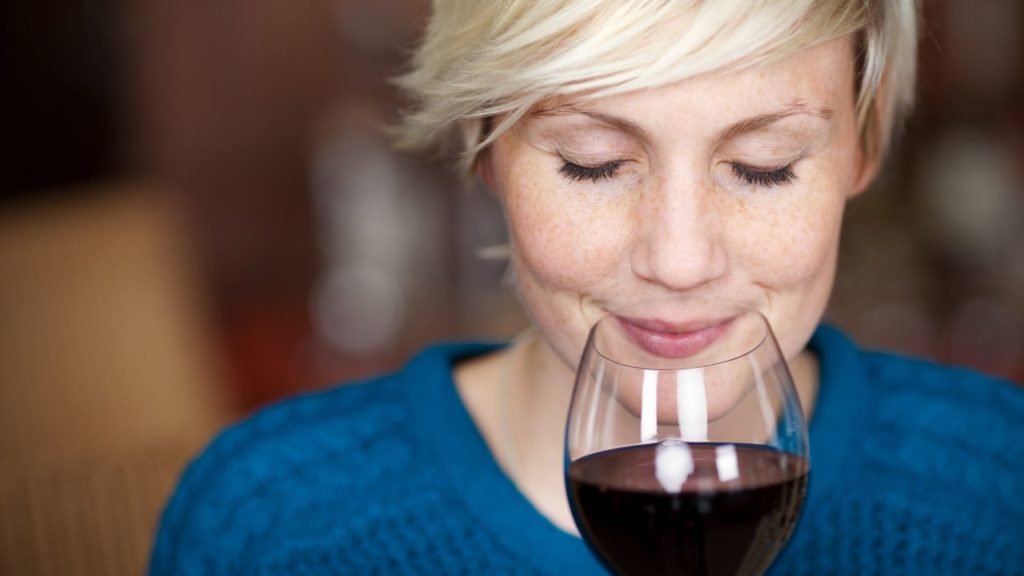Alcohol gained the attention of cancer researchers early in this century, when it was noted that alcoholics in France had a high incidence of cancers of the stomach and esophagus. It recently gained the attention of health-conscious consumers when studies linked moderate alcohol consumption to lower risk of coronary heart disease. But how does alcohol fit into a diet for overall good health? That is one of the questions facing the scientists on the Diet and Cancer Project commissioned by AICR and the World Cancer Research Fund (WCRF), AICR’s international affiliate.
The Research Today
By the time the National Academy of Sciences (NAS) issued their landmark Diet, Nutrition and Cancer report in 1982, there was enough convincing scientific evidence to link heavy alcohol consumption directly to cancers of the mouth and esophagus and indirectly to cancer of the liver. Much global research has been done in the area of nutrition and cancer since then and scientists on the AICR/WCRF Diet and Cancer Project (D and CP) expert panel are encouraged by the increased depth of knowledge about alcohol and cancer.
“While it was not possible to make some definitive statements in the NAS study, the D and CP report will be able to make very definite judgments on the increased risk of alcohol and some cancers,” says Dr. Festo Kavishe of UNICEF East/Southern Africa in Nairobi, Kenya and member of the D and CP scientific panel. “Particularly spectacular are the advances in the areas of epidemiological evidence and possible biological mechanisms to identify how alcohol may cause cancer.”
A Question of Consumption
While the new information shows that alcohol is a human carcinogen, it is not as clear how much alcohol puts a person at risk. According to D and CP panel member Dr. Sushma Palmer of the Central European Center for Health and Environment in Berlin, Germany, “The methodology in studies is not identical, making it hard to compare the results.” And, as with any studies that rely on human memory, there is always a question of whether the amount of alcohol consumed is inaccurately reported — a key factor in determining risk. “All this new evidence raises new questions,” Dr. Palmer says. “We need to explore what level of alcohol is safe, although it’s apparent that less is better. We also need to identify alcohol’s mode of action in cancers, such as breast cancer, as well as how alcohol interacts with other dietary factors,” she adds.
Putting It in Perspective
The expert panel is still weighing the evidence on alcohol and cancer, however, so release of any new recommendations will have to await publication of the report early next year. As Dr. Kavishe observes, however, “The point is not to curtail individual freedom of choice, but to assist people in making an informed choice by giving judgment on the present scientific evidence.”
How, for example, can cancer risk from alcohol be reconciled with recent reports that light to moderate alcohol consumption may decrease risk for coronary heart disease? Dr. Palmer believes the heart disease findings are not inconsistent with the cancer message, and says this question will be a subject for discussion at the next D and CP meeting this coming July. She says, “We want to see how we can provide guidance to people that’s helpful to their overall health.”
AICR – American Institute for Cancer Research
The American Institute for Cancer Research is the nation’s third largest cancer charity and focuses exclusively on the link between diet and cancer. The Institute provides a wide range of consumer education programs that have helped millions of Americans learn to make dietary changes for lower cancer risk. AICR also supports innovative research in cancer prevention and treatment at universities, hospitals and research centers across the U.S. The Institute has provided over $50 million in funding for research in diet, nutrition and cancer. Visit the Institute online at www.aicr.org
American Institute for Cancer Research
1759 R Street NW
Washington, DC 20009
1.800.843.8114

